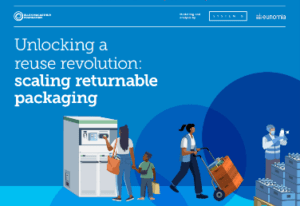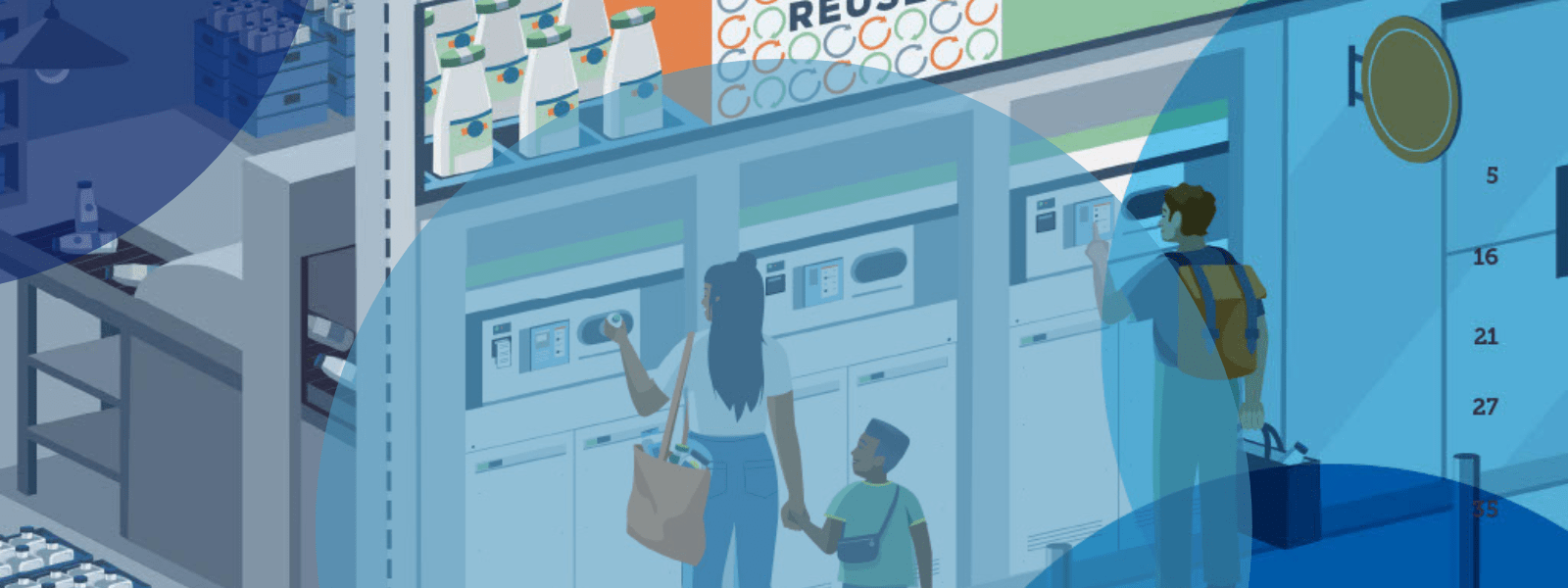 A new study conducted by the Ellen MacArthur Foundation in collaboration with Systemiq and Eunomia, unveils the potential for a reuse revolution to combat the plastic crisis.
A new study conducted by the Ellen MacArthur Foundation in collaboration with Systemiq and Eunomia, unveils the potential for a reuse revolution to combat the plastic crisis.
The ‘Unlocking a reuse revolution’ study found that returnable packaging, when designed collaboratively across industries and operated at scale, can deliver significant environmental benefits and economic competitiveness against single-use packaging for certain products.
The study was developed with insights from over 60 leading organisations including the European Investment Bank, national governments, reuse experts and major brands and retailers such as Danone, PepsiCo, The Coca-Cola Company, and Unilever. It focuses on returnable packaging, which – once bought and returned by customers – is professionally cleaned and refilled before being sold again.
Systemiq led the analysis of the economic and environmental performance of single-use packaging and their reusable alternatives for selected beverage, food cupboard, personal care, and fresh food items. The study shows that, in the most ambitious scenario, returnable plastic packaging could reduce greenhouse gas emissions and water use by 35% to 70% compared to single-use plastics.
"Without a significant shift towards reuse, worldwide virgin plastic use in packaging is unlikely to decrease below today’s levels before 2050. This report addresses the critical obstacles for reuse which brands and retailers face, head-on. It’s a real breakthrough to have proven such a compelling business case for industry collaboration and reusable packaging standardisation, and to understand exactly the conditions and applications for which the business case makes sense

Yoni Shiran
Partner and Plastics Lead, Systemiq
Sander Defruyt, Plastics Initiative Lead at the Ellen MacArthur Foundation, advocates for a “reuse revolution,” highlighting its potential to combat plastic pollution, conserve natural resources, and make strides towards a net-zero future. He acknowledges that scaling reuse is a major transition that requires further research and groundwork in specific regions and sectors.
To drive global change, the study authors call on leaders across the private, public and finance sectors to take a fresh approach to expand a reuse revolution through shared infrastructure, packaging standardisation, and collaborative efforts to achieve high return rates.

